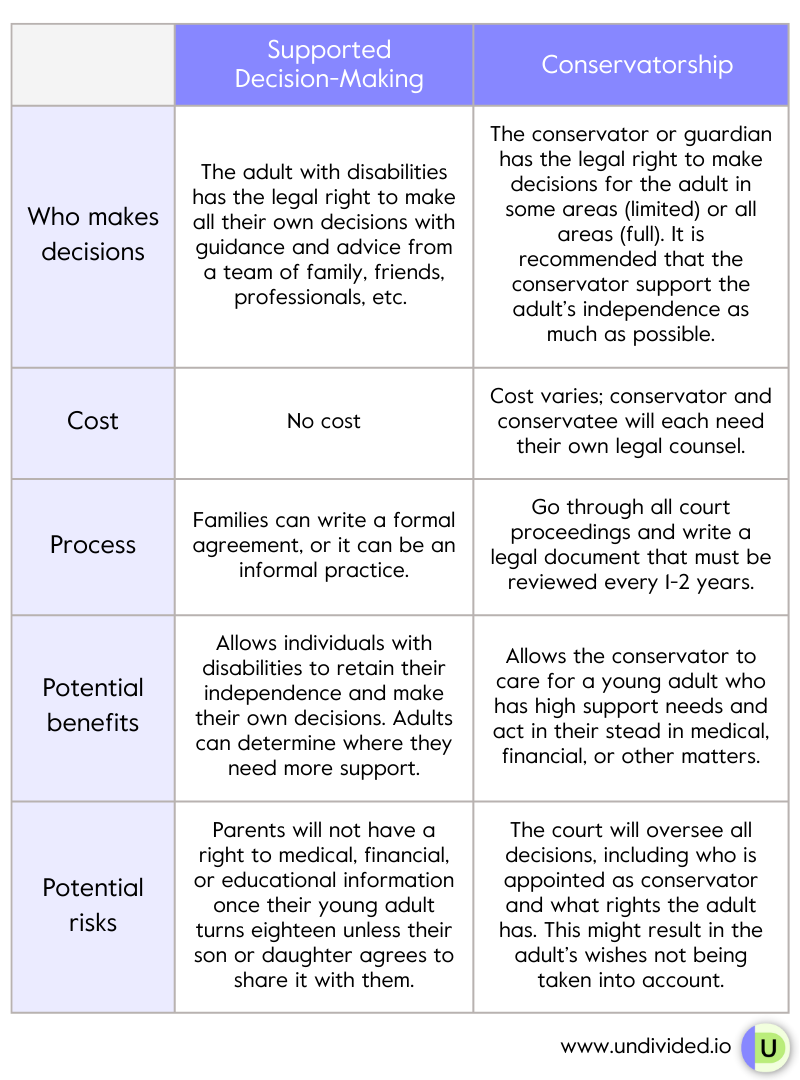Should I set up supported decision-making or a conservatorship?
Supported decision-making is appropriate whenever a person can make decisions but needs support to do so. For example, an individual can provide informed consent regarding medical treatment but needs help understanding difficult terminology. If a person is entirely unable to make sound decisions independently, supported decision-making may not be the best option for them. For example, a person who has never made their own decisions or responded to prompts to do so would likely not be an active participant in the process. In those cases, a higher level of support may be necessary, such as establishing durable power of attorney or a limited conservatorship.
For more information, check out our article Supported-Decision Making and Conservatorships.
Note that conservatorship in California is similar to the process called guardianship in other states.
Join for free
Save your favorite resources and access a custom Roadmap.
Get Started


